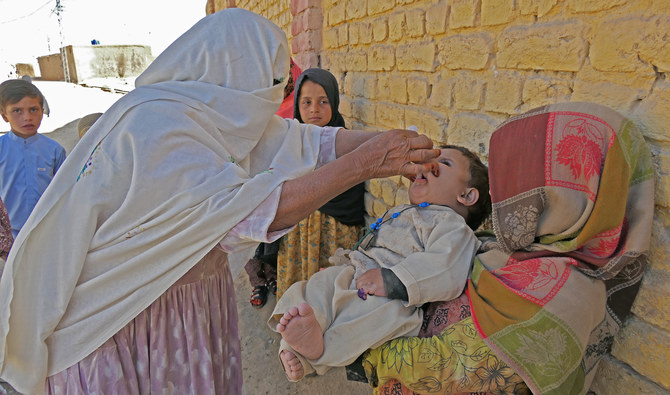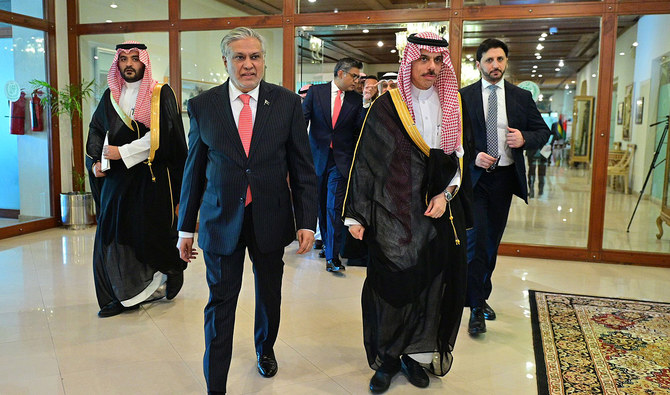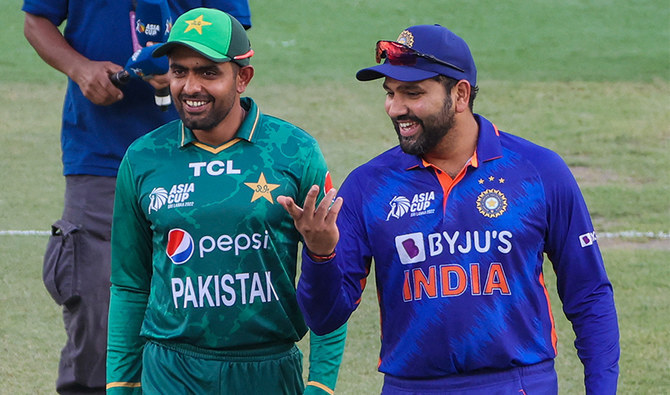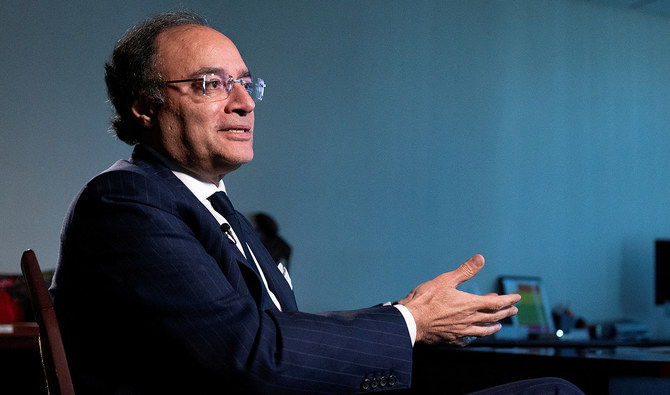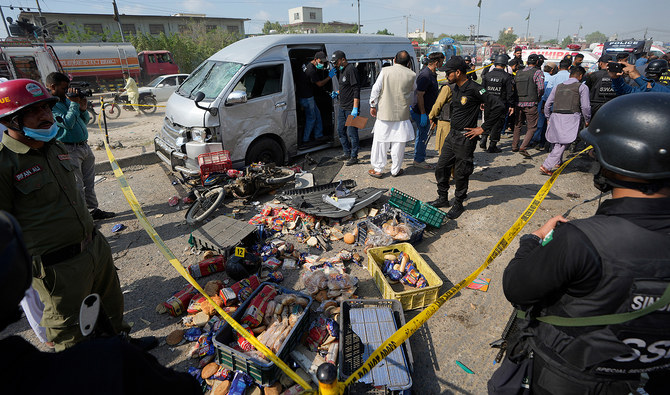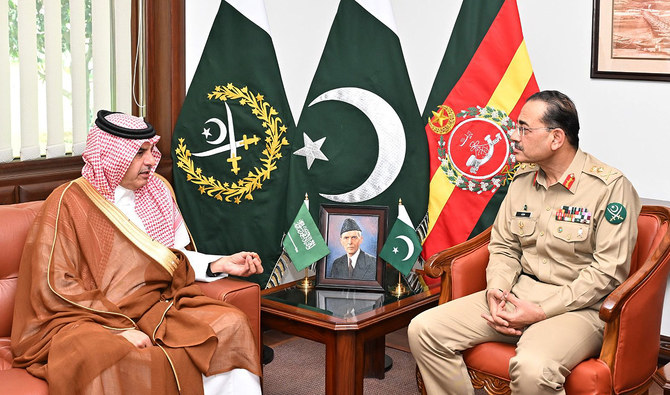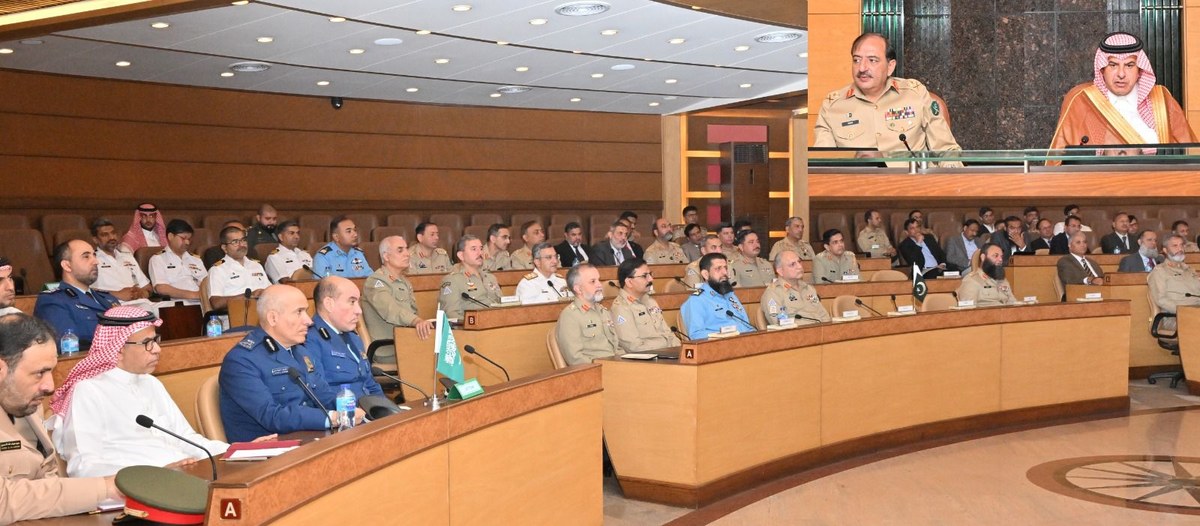QUETTA: As winter sets in north of Quetta, Dadi, a 77-year old woman elder in Balochistan’s Pishin District, wraps a shawl around herself and sets out into town with four items in her handbag: rosary beads, a handkerchief, chalk and polio drops.
Dadi, which means grandmother, is a term of endearment given to Hoora Bibi-- a community health worker in Killi Shadezai who spearheads a fierce anti-polio campaign in her small town, changing hearts and minds in an area notorious for suspicion and violence against polio workers.
“A man in my village was not vaccinating his children for 13 years, but when he saw me knocking on his door with polio vaccines in my bag, he couldn’t refuse. Since then, he has started vaccinating all his children,” Dadi told Arab News.
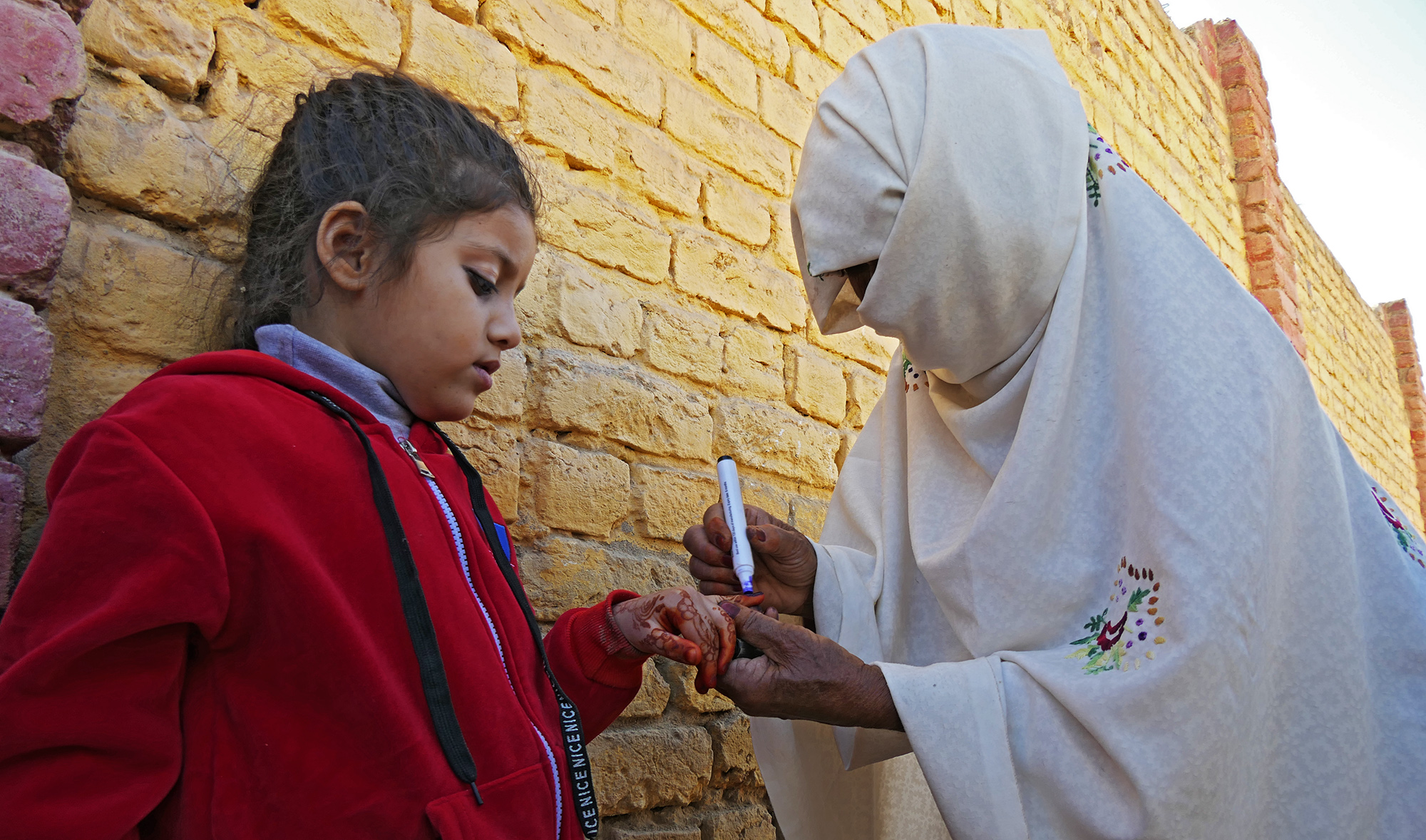
Hoora Bibi, aka Dadi, marks the finger of a child after administrating polio drops in district Pishin on Dec. 3, 2020. (AN photo)
Efforts to eradicate the disease in the South Asian country have been undermined by militants and fundamentalists, who say immunization is a foreign ploy to sterilize Muslim children or a cover for Western spies.
Last year, religious hard-liners in the northwestern city of Peshawar spread rumors of children falling sick due to the vaccine, triggering backlash in the conservative country, which is one of only two countries in the world where polio still exists.
But despite all the odds, Dadi, her white shawl concealing everything but her eyes, goes about her job to vaccinate the more than 250 children under the age of five who live in her town.
“A man in my village introduced me to the health official working in the polio program because I was the only woman with a little educational background and I had influence among the women in Killi Shadezai village,” Dadi said.
Initially she said, she too was reluctant to become part of anti-polio drives because of overwhelming negative propaganda from some religious quarters.
“Before becoming part of anti-polio campaigns, I sent my son to Quetta, to ask religious scholars whether payment given to polio workers is acceptable in Islam. But they satisfied me, and they said it’s a sacred cause to save children from a lifetime of disability,” she said.
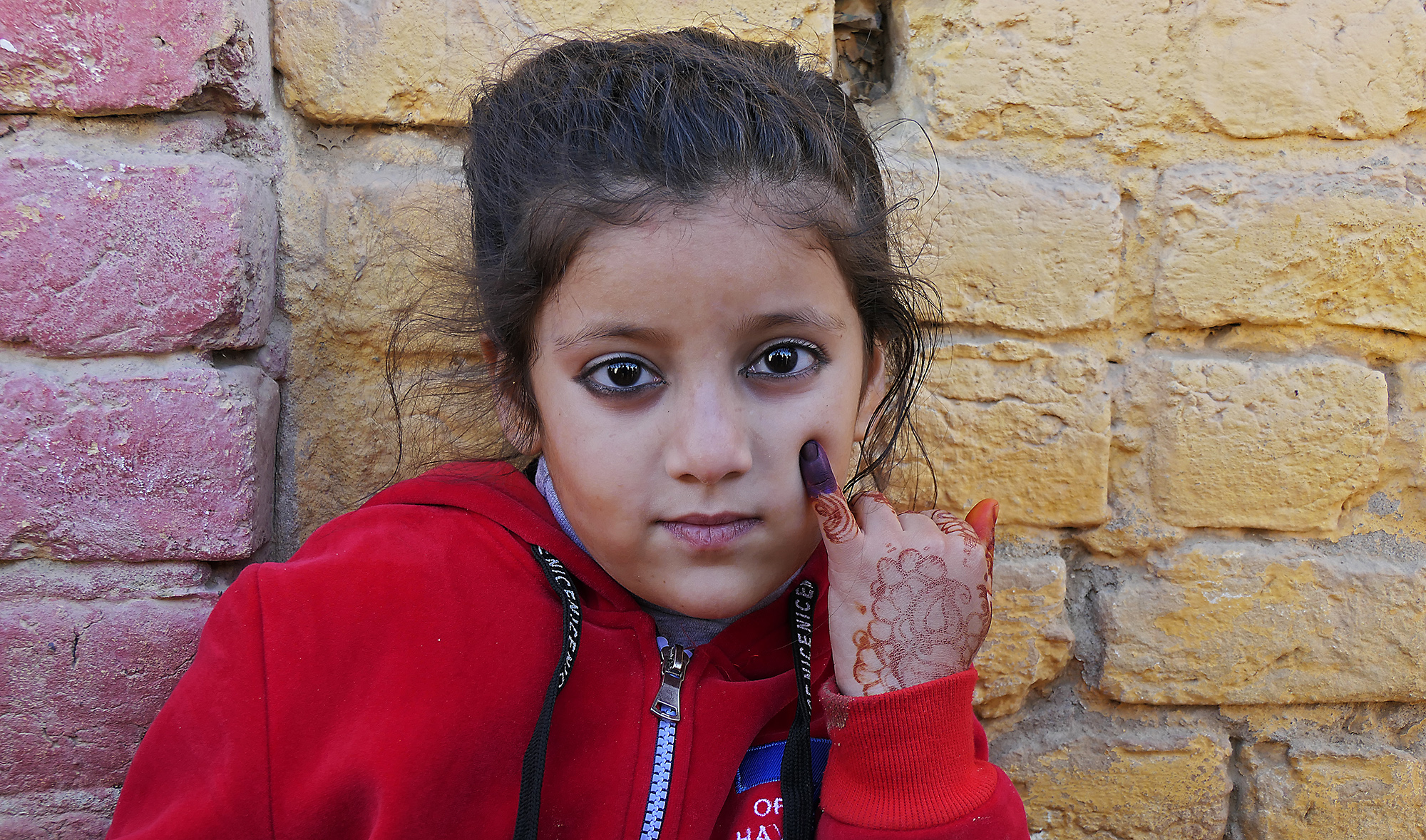
A child vaccinated by Hoora Bibi, aka Dadi, shows off her colored finger mark used to keep track of vaccinations, in district Pishin on Dec. 3, 2020. (AN photo)
After a pause in the anti-polio campaign following the coronavirus outbreak earlier this year, vaccinations were restarted in July amid a spike in polio cases.
So far, 82 polio cases have been reported in Pakistan this year, with 24 surfacing in Balochistan province alone.
But the suspicion against polio workers remains deeply entrenched and was further fueled in 2011, when the involvement of a Pakistani doctor going door-to-door helped US intelligence agents locate the whereabouts of Al Qaeda leader Osama bin Laden.
According to data compiled by the National Emergency Center for Polio, a total of 101 polio workers and security men have been killed in attacks against polio teams in Pakistan since 2012, while 36 polio workers including women have been targeted in attacks against anti-polio drives in Balochistan province.
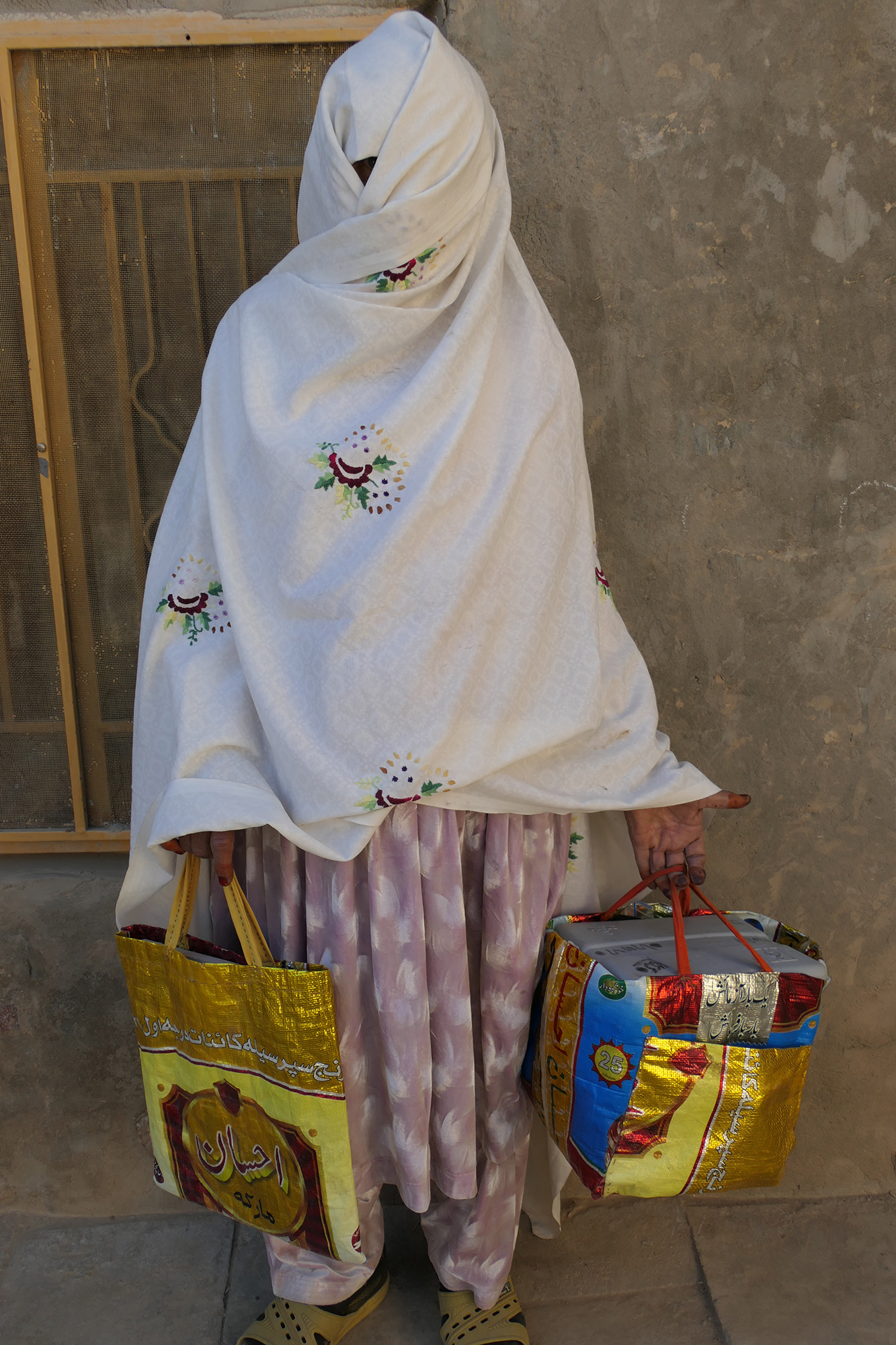
Hoora Bibi, aka Dadi, poses in her white shawl and bags to begin a polio vaccination campaign in her village in district Pishin on Dec. 3, 2020. (AN photo)
A woman polio worker was gunned down in April 2019 while vaccinating children in Chaman, a Pak-Afghan border city. Another mother and daughter duo working as polio field workers were ambushed by unknown militants in Quetta in January 2018.
Despite the violence, the course the endemic takes for children in Pakistan continues to rest on the courage of community polio workers who go door-to-door armed with polio drops in high risk areas.
“In some cases, polio workers in Balochistan... even female workers have faced attacks and abuse by angry mobs,” Rashid Razzaq, coordinator to the Emergency Operation Center for Polio in Balochistan, told Arab News.
“But the next day, they visit these areas again to vaccinate the children,” he added.
“Fortunately, Hoora Bibi has won the hearts of her villagers and they pay her immense respect.”
That respect has also translated into other women from Killi Shadezai joining the campaign as polio workers.
“Dadi has been working in the field since the last four years and encouraged other women to join her, because we were unable to find female field workers,” Syed Muhammad Siddique, a fellow polio worker in Pishin told Arab News.
He said Dadi had addressed several vaccination refusal cases in the district.
“I have categorically told people in my village that those who do not administer polio vaccines are making their children prone to disability and death because it’s a vaccine to save our children’s future,” Dadi said.
Hoori Bibi went to school until the fifth standard, and never studied much English or Math. She is well-known in her village for her vaccination style, true to her nickname and with all the authority of a real grandmother.
With her handkerchief, first she tidies up the face of any child she finds too dirty at first glance. Then she begins her work.
“I don’t know English but learned through training how to vaccinate the children (with) the polio vaccine efficacy indicator and door marking technique,” she said.
“I count the number of children vaccinated on my rosary beads, and then write the number down on doors and walls,” she continued.
“The children are so happy with me, their families give me so much respect and love. I’ve been covering 76 homes in my town with 250 children... and I know all of the children by their names and house chalking,” she said, with the hint of an unseen smile in her voice.



